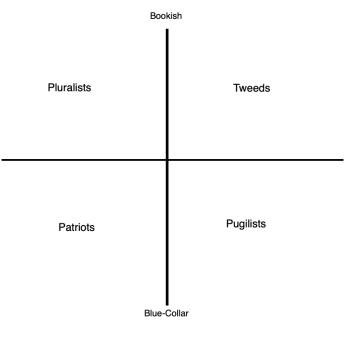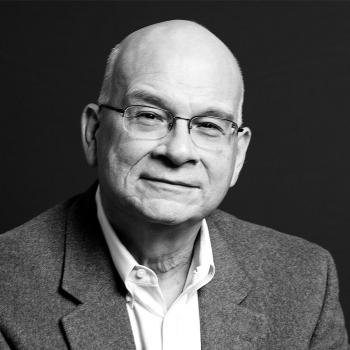
My reading goal this year was 250 books—and happily, it’s looking like I’ll finish up 2018 slightly ahead of schedule. I’m posting here because most of these volumes touch on theological concerns, in one way or another—though admittedly some do so more explicitly than others.
The Politics of Virtue: Post-Liberalism and the Human Future (John Milbank & Adrian Pabst)
Dissatisfied with mainstream American conservative defenses of the liberal-democratic project (see Jonah Goldberg’s “Suicide of the West’)? Tired of doomsday proclamations about how modern Western civilization was doomed from the start (see Patrick Deneen’s “Why Liberalism Failed”)? Ill at ease with Catholic integralism (see Andrew Willard Jones’s “Between Church and State”)? Worried about the consequences of stepping firmly away from the global order (see Yoram Hazony’s “The Virtue of Nationalism”)? Then “The Politics of Virtue” may be the volume for you.
Milbank and Pabst deliver a stinging critique of contemporary economic and political monoculture while simultaneously—and this is key—offering specific and highly detailed alternatives. Their model, which couples a social-democratic economic paradigm with socially conservative policy propositions, has no clear U.S. analogue: it draws on Continental political traditions to offer a path beyond American-style gridlock. It’s deeply erudite, thought-provoking, and jammed with genuinely novel insights—and it’s the best book I read this year by far.
Creativity Without Law: Challenging the Assumptions of Intellectual Property (Kate Darling & Aaron Perzanowski, eds.)
In this inventive book, the authors explore how different subcultures (roller derby participants, French chefs, tattoo artists, and so on) promote creativity and punish “copycat” behavior without relying on a strict system of patents and licenses. The self-regulatory schemes described here might or might not work at scale (would pharmaceutical companies really police themselves?) but this book nonetheless opens up a space to contemplate the thrilling possibilities of a more flexible IP regime.
The Hindus: An Alternative History (Wendy Doniger)
If you’re anything like me, your knowledge of Hinduism and Indian history is woefully deficient. Doniger’s book, laced with wit and verve, exists precisely to help with that. She chronicles the nuances of Hindu religious thought from its earliest origins all the way to the present, while leavening her historical commentary with extracts from ancient Indian myths (which you almost certainly have never encountered). It’s a doorstopper of a text, but absolutely worth the time commitment.
Radical Markets: Uprooting Capitalism and Democracy for a Just Society (Eric A. Posner & E. Glenn Weyl)
Posner and Weyl sketch out a series of extremely controversial, ultra-libertarian ideas designed to increase economic equality without heavy-handed state intervention. And their proposals are indeed radical. (Private sponsorship of individual immigrants? Laws requiring that all real and personal property be assigned a cash value and be made available for purchase? The list goes on.)
If, like me, you favor free markets and are uncomfortable with centralized state power—but don’t necessarily want to embrace the authors’ hyper-transactional vision—you’d better have a good rejoinder to Posner and Weyl’s carefully developed arguments. Theirs is a disquieting, but intellectually provocative, book.
Ethics in the Conflicts of Modernity: An Essay on Desire, Practical Reasoning, and Narrative (Alasdair MacIntyre)
There’s nothing I can possibly say about Alasdair MacIntyre that hasn’t already been said by much smarter people—save that “ECM” may be his finest work of all. If you left “After Virtue” wondering what MacIntyre actually stands for (rather than just what he stands against), this is the book for you. It may not make you a Catholic, but it really ought to make you a Thomist.
In particular, the closing chapter of the book—which discusses the intersection of traditions and moral reasoning through case studies of four lives, including that of Supreme Court Justice Sandra Day O’Connor—is a tour de force of intellectual mastery that blows its philosophical counterparts out of the water. “ECM” is the culmination of a lifetime of careful reflection on the most important questions in human life, and (fortunately for us) MacIntyre is happy to show his work. (It also has one of the best closing sentences of any philosophy book I’ve ever read. But I won’t spoil it here.)
The Name of the Wind (Patrick Rothfuss)
I don’t read nearly as much fiction as I once did—and I almost never read fantasy novels anymore (I’ve kind of worked my way through the contemporary canon, and there’s not much else out there). Somehow though, to my shame, I’d overlooked Rothfuss’s wonderful “Kingkiller Chronicle” along the way.
The real star here isn’t the narrative, which hits a lot of familiar hero’s-journey story beats, but Rothfuss’s irresistibly alluring prose style (if Robert Jordan or Terry Goodkind weren’t for you, this is probably more your speed). To put things in perspective, the book clocks in at nearly 900 pages and I read it in one uninterrupted go. It’s just that good.
Until Proven Innocent: Political Correctness and the Shameful Injustices of the Duke Lacrosse Rape Case (Stuart Taylor Jr. & KC Johnson)
Despite this book’s apparently incendiary title, it’s actually quite measured in its analysis. Page by page, Taylor and Johnson deconstruct a miscarriage of justice, explaining in painstaking detail how political and cultural forces drove a shady prosecutor—and nearly an entire university campus—to rush to judgment. In so doing, they explore not only the social fallout of the controversy, but also probe serious structural challenges within the American justice system: namely, the virtually unfettered discretion enjoyed by prosecutors’ offices in general.
Believers, Thinkers, and Founders: How We Came to Be One Nation Under God (Kevin Seamus Hasson)
In this slender volume, Hasson, the founder of the Becket Fund for Religious Liberty, articulates a fascinating and genuinely novel perspective on religion in American public life. Essentially, his contention is that American civil religion is oriented toward the “philosophers’ God” of Hellenistic thought—not the God of Abraham, Isaac, and Jacob revealed in Christianity proper. And while Christian theology has traditionally linked the two conceptions, there’s nothing necessitating this. The existence of the philosophers’ God, Hasson argues (following Aquinas), is an intellectual conclusion that may be reached through reason—just as one might conclude, via reason, that equality and liberty are intrinsically valuable goods. Why, Hasson wonders, should the latter proposition be admissible in the public square, but not the former?
You may not agree with him (some folks of a Reformed cast of mind certainly won’t) but his is an original and dynamic position that’s rarely voiced in the public square.
Educated: A Memoir (Tara Westover)
In this thoughtful autobiography, Westover—a Ph.D. graduate of the University of Cambridge—chronicles her upbringing in a survivalist household skeptical of education, the state, and modern medicine. What’s truly remarkable about her book, though, is its striking lack of bitterness and resentment. Instead, her descriptions thread a difficult needle, managing to come off as both sympathetic and analytical. It’s the rare story of this kind that manages to be inspiring without sacrificing nuance—and its vivid imagery lingers long afterwards.
Middlemarch (George Eliot)
“Middlemarch” is to a Jane Austen novel what a Special 80% Reserve Cacao chocolate bar is to a bar of Hershey’s Special Dark. It evokes “Sense and Sensibility” while simultaneously being sharper, bitterer, with a slightly harsher cast to it. Here, everyone doesn’t get their happy ending—nor do they deserve to. (That’s not to say it’s not funny—an extended satirical riff on James George Frazer’s “The Golden Bough” is particularly memorable.) It’s a haunting read that seeps into your bones, even if you can’t really explain why.
____________________
What are your favorite books from 2018? Please feel free to share in the comments!












